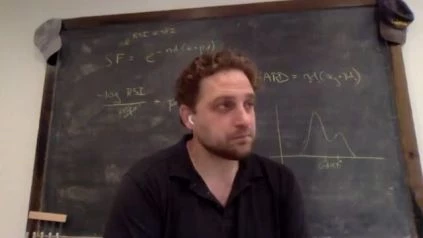Jacob Scott, MD, DPhil of the Cleveland Clinic speaks about Combining Genomics and Mathematics Helps Personalize Radiation Therapy for Lung Cancer.
Over the decades, clinical trials of lung cancer have determined an ideal “one size fits all” dosing scheme for patients treated with radiation therapy, TAMPA, Fla., and CLEVELAND, Ohio, but recent evidence now indicates that this is not as biologically reliable as once thought. For up to 75 percent of lung cancer patients, a new technique using tumor genomics to personalize radiation dosing suggests that the standard of care method could be suboptimal.
A paper published in the Dec. 9 Journal of Thoracic Oncology, co-authored by Dr. Javier F. Torres-Roca, a senior member of the Moffitt Cancer Center Radiation Oncology Program, and Dr. Jacob G. Scott, a radiation oncologist and physician-researcher at the Cleveland Clinic Department of Translational Hematology and Oncology Research, reveals an approach to integrating individual tumor genomics Their research shows a chance to increase the effectiveness and decrease the toxicity of radiation therapy by applying this customized technology.
The Genomic Modified Radiation Dose (GARD), a method of dosing that accounts for biological variations, was developed by Torres-Roca and Scott in 2017 and can be used to predict the ideal radiation therapy dose for each individual patient. The findings were published and used as a basis for this most recent advance in Lancet Oncology.
Although the research involved patients with non-small cell lung cancer, Torres-Roca and Scott are optimistic that the technology could also be used in other cancers.
In early 2021, Moffitt Cancer Center plans to launch a clinical trial using the latest technology.

